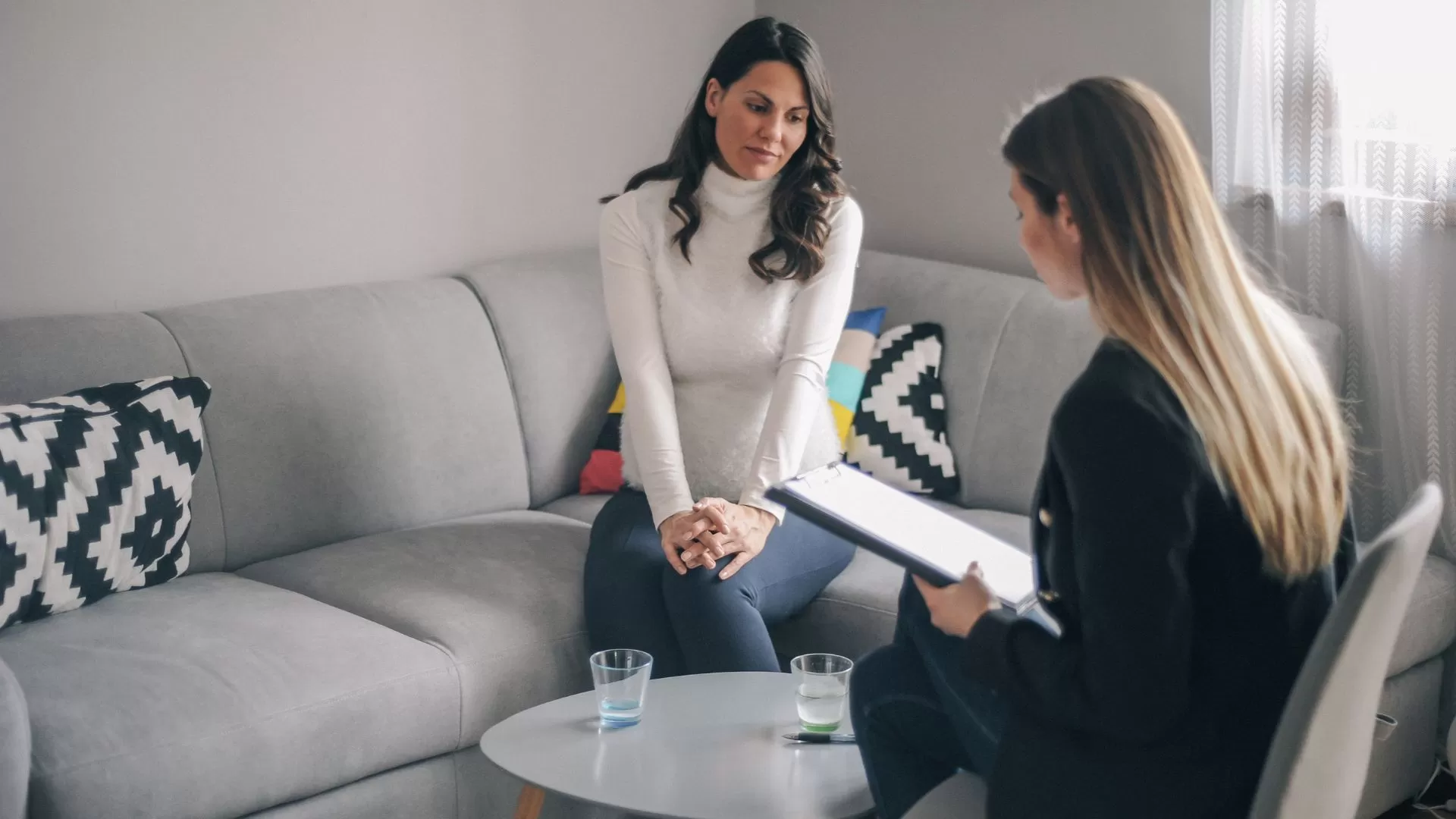Women's Mental Health Counselling Therapy for Depression
We recognize that women’s mental health challenges can be unique, especially when it comes to depression. Our counseling therapy offers a safe space for support and healing, addressing specific issues like low self-esteem and trauma. We focus on understanding the symptoms women face, such as persistent sadness and irritability, while also considering the impact of hormonal changes. Using approaches like Cognitive Behavioral Therapy, we help individuals reframe negative thoughts and develop resilience. Together, we can create effective coping strategies and build a sense of community. There’s so much more about this important journey to explore.

About Women's Mental Health Counselling Therapy
Women’s Mental Health Counselling therapy is an essential resource that helps us navigate the unique challenges we face, offering a safe space for healing and growth. This type of mental health counseling is tailored specifically for women, addressing our distinct experiences and struggles. Through psychotherapy for women, we explore our emotional well-being and develop strategies for effective anxiety management and stress management.
In our sessions, we receive invaluable emotional support while tackling issues like low self-esteem and the effects of trauma. Depression treatment in a supportive environment enables us to confront our feelings, find coping mechanisms, and foster resilience. We learn that recovery is not a linear path, but rather a journey we commence on together, seeking understanding and empowerment.
Moreover, mental health counselling can provide tools to enhance our self-esteem and build healthier relationships. As we engage in this therapeutic process, we cultivate a deeper awareness of our emotions and develop skills that promote long-lasting change. Together, we can break the stigma around women’s mental health and prioritize our well-being, ultimately creating a more balanced and fulfilling life.
Understanding Depression in Women: Key Symptoms and Challenges
Depression can often manifest differently in women, making it essential for us to recognize its key symptoms and the unique challenges we may face. Many of us experience a blend of depression and anxiety, which can complicate our emotional well-being. We might find ourselves grappling with persistent sadness, fatigue, or irritability, often coupled with low self-esteem and feelings of worthlessness.
Women’s mental health counselling therapy can be an important resource in maneuvering through these mood disorders. By addressing our emotional pain, we can develop effective coping skills that promote resilience. It’s important to understand that seeking treatment is not a sign of weakness; rather, it shows strength and a commitment to our psychological well-being.
Additionally, societal pressures and expectations can exacerbate our struggles, making it even more challenging to seek mental health support. We may feel overwhelmed by the demands of work, family, and relationships, which can intensify feelings of isolation.
Recognizing these symptoms and challenges is the first step toward healing. Together, we can work to foster a supportive environment, encouraging open conversations about depression and emphasizing the significance of seeking help when needed.

Comprehensive Depression Assessment and Diagnosis for Women
Understanding the nuances of depression assessment and diagnosis can empower us to seek the right support tailored to our unique experiences and needs. A thorough depression assessment is essential for identifying the specific challenges we face as women. It’s not just about recognizing symptoms; it involves understanding our emotional health, history, and the societal pressures that affect our self-worth.
In depression counseling, mental health care professionals employ trauma-informed care to guarantee we feel safe and understood. This approach helps in addressing women’s issues, such as the impact of hormonal changes or caregiving responsibilities, which can exacerbate our mental health struggles. Through thoughtful dialogue, we can explore effective coping strategies that promote mood stabilization and resilience.
Cognitive Behavioral Therapy (CBT) for Depression in Women's Mental Health
Exploring Cognitive Behavioral Therapy (CBT) offers us a powerful tool to challenge negative thought patterns that often contribute to our feelings of sadness and hopelessness. In women’s mental health, CBT helps us gain self-awareness, enabling us to identify and reframe distorted beliefs that can exacerbate depression. Through structured therapy sessions, we can learn effective coping mechanisms that promote emotional regulation and resilience.
CBT isn’t just about understanding our emotions; it actively provides strategies for anxiety relief and tackling the underlying issues of emotional trauma recovery. As we engage in this process, we discover how our thoughts influence our feelings and behaviors, empowering us to take control of our mental wellness.
Moreover, CBT encourages us to set realistic goals, which can uplift our spirits and foster a sense of achievement. By working collaboratively with a therapist, we can navigate our unique challenges and cultivate a more balanced perspective on life. Ultimately, CBT offers us hope and a pathway to healing, guiding us toward a brighter future free from the shackles of depression. Together, we can embrace the journey toward mental wellness and emotional health.
Managing Co-Occurring Conditions: Anxiety and Depression in Women
Maneuvering the intertwined challenges of anxiety and depression can feel overwhelming, but we can find effective strategies to manage these co-occurring conditions together. Women often experience anxiety disorders alongside depression, making it essential to address both issues in our journey toward healing. Accessing women’s counseling services can provide us with the support we need.
Incorporating self-help techniques can empower us in our daily lives. Mindfulness-based therapy can help us cultivate emotional resilience, allowing us to ground ourselves amid stress. In addition, practicing stress reduction techniques, such as deep breathing or yoga, can alleviate symptoms of both anxiety and depression.
Trauma therapy may also be beneficial for those of us who have experienced past trauma, as it can help us process our feelings and promote overall wellness. By utilizing mental health resources available to us, we can equip ourselves with the tools necessary for recovery.
Together, we can create a thorough plan that addresses our unique experiences with anxiety and depression, fostering a supportive environment for healing and growth. Remember, we’re not alone in this journey, and seeking help is a brave step toward a healthier, more fulfilling life.

Postpartum Depression and Perinatal Mental Health Support for New Mothers
Many new mothers face the challenging reality of postpartum depression, highlighting the importance of accessible perinatal mental health support during this significant time. We recognize that maneuvering through the emotional ups and downs of motherhood can be overwhelming, especially when it comes to women’s emotional health. It’s essential to prioritize maternal mental health, as this impacts not only the mother but also her entire family.
Counseling for women dealing with postpartum depression can provide a safe space for emotional recovery. In these sessions, we can explore feelings of anxiety, sadness, or even trauma healing, which many new mothers experience. Self-care becomes vital, allowing us to cultivate resilience and cope with the demands of parenting.
Participating in women’s support groups can also be incredibly beneficial. Sharing experiences with others who comprehend what we’re going through fosters a sense of community and belonging. By embracing perinatal mental health resources, we empower each other to seek help and prioritize our well-being. Together, we can overcome postpartum challenges and pave the way for healthier futures for both ourselves and our children.
Enhancing Self-Esteem and Emotional Resilience Through Depression Counseling
Building self-esteem and emotional resilience is vital for women maneuvering the challenges of depression, and counseling can be a transformative step in that journey. Through women’s therapy, we can explore the roots of low self-esteem and develop strategies that foster self-compassion and personal growth.
In our sessions, we’ll learn to acknowledge our feelings without judgment, allowing us to cultivate mindfulness. This practice helps us become more aware of negative thought patterns and replace them with positive affirmations. As we engage in mental health therapy, we’ll discover tools to build emotional resilience, enabling us to bounce back from setbacks and navigate life’s challenges more effectively.
Moreover, trauma recovery programs can play an important role in this process, guiding us toward healing from past experiences that may be impacting our self-worth. By embracing these therapeutic approaches, we not only address the symptoms of depression but also empower ourselves to rise above them.
Together, we’ll create a supportive environment where we can share our experiences, learn from each other, and ultimately, strengthen our emotional foundations for a brighter future. Through counseling, we can emerge as more resilient versions of ourselves.

Coping Strategies for Depression: Techniques for Daily Emotional Well-Being
Finding effective coping strategies for depression can be a game-changer in our daily emotional well-being, helping us navigate life’s ups and downs with greater ease. We can explore various techniques that provide stress relief and promote resilience. Mindfulness meditation, for instance, allows us to stay present and fosters a sense of calm amidst chaos. Incorporating relaxation techniques, like deep breathing or progressive muscle relaxation, can further enhance our emotional stability.
Psychotherapy and holistic therapy are crucial avenues for understanding our emotions and developing coping strategies. Engaging in support groups can also empower us, creating a sense of community where we share experiences and learn from each other. As we face life changes, it’s important to recognize that seeking help is a strength, not a weakness.
We can also focus on women’s empowerment by prioritizing self-care and setting healthy boundaries. By integrating these coping strategies into our daily lives, we cultivate a supportive environment for ourselves and others. Together, we can foster emotional well-being and resilience, enabling us to thrive even in challenging times.
Depression and Relationship Issues: Supporting Emotional Connections
Steering through the complexities of depression can often strain our relationships, making it essential to nurture emotional connections with our loved ones during these challenging times. When we’re dealing with major depressive disorder or heightened anxiety, we may inadvertently push those close to us away. It’s crucial to recognize how this can create relationship issues, deepening our feelings of isolation.
By engaging in open conversations about our struggles, we can foster understanding and support. Seeking anxiety counseling or behavioral therapy can equip us with tools to express our emotions more effectively. This process not only aids in our healing but also strengthens our bonds.
We should remember that grief and stress can affect anyone, and sharing our experiences can promote empathy and connection. Women’s empowerment plays a key role in this journey; embracing our mental health challenges allows us to reclaim our narratives, forging deeper emotional connections.
Depression Therapy for Body Image and Eating Disorders in Women
Many women struggle with the intertwined challenges of body image issues and eating disorders, which can often exacerbate feelings of depression and affect overall well-being. In our journey together through therapy, we aim to foster women’s empowerment by addressing the negative thoughts that contribute to these struggles. We recognize that trauma may play a significant role in shaping our perceptions of self-worth and body image.
Through mental health advocacy, we’ll explore the underlying causes of emotional numbness and how it can lead to self-harm or unhealthy coping mechanisms. Relationship counseling can also be an essential part of this process, as we learn to navigate the impact of our body image on our connections with others.
In therapy, we’ll cultivate a supportive environment where we can openly discuss our experiences with eating disorders, understanding that these challenges aren’t just about food but also about seeking control and comfort. We’ll work together to develop healthier coping strategies, encouraging self-compassion and resilience. By addressing these issues holistically, we can break the cycle of depression and build a more positive relationship with ourselves and our bodies.
Mindfulness and Meditation for Depression Management in Women
As we continue our journey toward healing, incorporating mindfulness and meditation can be powerful tools in managing depression and fostering a deeper connection with ourselves. These practices encourage us to stay present, helping to alleviate feelings of hopelessness and fatigue that often accompany clinical depression and other mood disorders.
Mindfulness allows us to observe our thoughts and emotions without judgment, creating space for self-compassion and understanding. This can empower us to break free from negative thought patterns, enhancing our overall wellness. By dedicating time to meditation, we can cultivate a sense of calm and clarity, making it easier to navigate the emotional challenges we face.
Many of us find that combining mindfulness and meditation with talk therapy creates a holistic approach to mental health. This integration not only promotes women’s empowerment but also reinforces the importance of self-care in our healing process. As we explore these practices together, we can build resilience and strengthen our mental well-being, reminding ourselves that we’re not alone on this journey. Embracing mindfulness and meditation can be essential steps toward reclaiming our joy and peace of mind.
Holistic Approaches to Depression: Integrating Self-Care and Wellness
Exploring holistic approaches to depression means we can weave together self-care and wellness practices that nurture our mind, body, and spirit. By embracing these practices, we’re not only prioritizing our mental health but also fostering women’s empowerment. Integrating therapy with self-care routines can create a supportive environment where we can thrive.
One essential aspect of holistic approaches is maintaining hormonal balance, which plays a significant role in our overall well-being. Regular exercise, for instance, can help regulate hormones and alleviate symptoms of depression. Furthermore, finding a work-life balance is crucial, as it allows us to create space for activities that promote joy and fulfillment.
Incorporating grief counseling can also be instrumental, as it helps us process emotions and experiences that contribute to our mental health struggles. By combining these elements—therapy, self-care, and community support—we can cultivate resilience and a deeper understanding of ourselves.
Ultimately, holistic approaches empower us to take charge of our mental health, helping us navigate the complexities of life with grace and strength. Together, we can embrace self-care and wellness, leading us toward a brighter, more balanced future.
Seasonal Affective Disorder (SAD) and Light Therapy for Women
Seasonal Affective Disorder (SAD) can greatly impact our emotional well-being during the darker months, but light therapy offers a promising solution to help us regain balance and joy. Many women experience this form of depression, which often stems from a decrease in sunlight exposure, affecting our brain chemistry. Low levels of serotonin and dopamine can lead to feelings of hopelessness and fatigue, making it a challenge to maintain our usual joy and energy.
Light therapy mimics natural sunlight, promoting the production of these crucial neurotransmitters. By incorporating this therapy into our self-care routines, we can empower ourselves to combat the symptoms of SAD and improve our overall mental health. While some may turn to antidepressants, light therapy provides a non-invasive alternative that aligns well with holistic approaches.
As we navigate these difficult months, it’s important to support one another in recognizing the signs of seasonal affective disorder. By seeking therapy and exploring light therapy, we can enhance our resilience and well-being. Together, we can fight back against mental illness and embrace a brighter outlook on life. Remember, we’re not alone in this journey.
Hormonal Balance and Its Role in Women's Mental Health and Depression
Hormonal balance plays an essential role in our mental health, as fluctuations can greatly impact mood and contribute to feelings of anxiety and depression among women. Many of us have experienced persistent sadness, irritability, or even insomnia during times of hormonal changes, such as our menstrual cycle, pregnancy, or menopause. These shifts can lead to appetite changes and weight gain, which may further exacerbate our mental health struggles.
It’s important to understand that these feelings aren’t just in our heads; they’re often tied to our hormonal balance. When our hormones are out of sync, it can create a cycle of anxiety and depression that feels overwhelming. However, recognizing this connection empowers us to take action.
We can seek support, whether through therapy or lifestyle changes, to help regulate our hormones and improve our mental well-being. By prioritizing our hormonal health, we can reduce symptoms of anxiety and depression, allowing us to regain control over our lives. Ultimately, understanding the role of hormonal balance in women’s mental health can foster a sense of empowerment as we navigate our emotional landscapes together.
Building Community Support: Women's Depression Support Groups
Recognizing the impact of hormonal changes on our mental health highlights the importance of community support, especially through women’s depression support groups that provide a safe space for sharing experiences and healing together. In these groups, we can openly discuss our struggles with depression, social withdrawal, and anhedonia, knowing we’re not alone in our journey.
Women’s empowerment is a core focus, encouraging us to reclaim our identities and address any identity issues that may arise from societal expectations or maternal health challenges. By connecting with others facing similar struggles, we can break the stigma surrounding mental health, fostering an environment where vulnerability is met with compassion and understanding.
Support groups not only offer emotional support but also practical strategies for coping with depression. We can lean on each other for guidance, share resources, and celebrate our victories, no matter how small. As we build community support, we strengthen our resilience and promote mental health awareness, creating a ripple effect that empowers us all. Together, we can transform our shared experiences into a powerful force for healing and growth, reminding each other that we are worthy of support and care.
Contact Us for Specialized Women's Depression Counseling and Therapy Services
If you’re seeking compassionate and tailored support for women’s depression, we’re here to help you navigate your journey toward healing and well-being. Our specialized counseling services focus on women’s empowerment, acknowledging the unique challenges women face, including depression, burnout, and PTSD.
We believe that understanding the specific dynamics of women’s mental health is essential for effective diagnosis and treatment. Whether you’re considering medication options like SSRIs (serotonin reuptake inhibitors) or exploring gender-specific therapy approaches, we’re committed to guiding you through every step. Our team of trained professionals offers a safe space to discuss your feelings and experiences, allowing for personalized strategies that resonate with you.
Additionally, we offer family counseling to help loved ones understand and support your journey. We’re here to validate your feelings and provide practical tools that promote resilience and recovery. Remember, you don’t have to face this alone; we’re dedicated to walking alongside you, empowering you to reclaim your mental health and well-being. Contact us today to learn more about how our specialized therapy services can make a difference in your life.

Frequently Asked Questions
What Should I Expect During My First Counseling Session for Depression?
When we head into our first counseling session for depression, we can expect a warm, welcoming environment. The counselor will likely ask us about our feelings, experiences, and what brings us there. It’s a chance for us to share our story without judgment. We should remember that it’s okay to feel nervous; establishing trust takes time. Together, we can explore coping strategies and set goals for our journey towards healing.
How Long Does Therapy Typically Take to Show Results for Depression?
When we start therapy, it’s natural to wonder how long it’ll take to see results. Typically, we might notice some changes within a few weeks, but deeper progress often takes several months. It’s important to remember that everyone’s journey is unique, and factors like our personal experiences and commitment to the process play a significant role. Let’s be patient and trust the process; meaningful change often unfolds over time.
Are There Specific Therapies for Women of Different Ages Experiencing Depression?
Absolutely, there are specific therapies tailored for women of different ages experiencing depression. It is understood that each stage of life brings unique challenges, and the therapeutic approach can vary accordingly. For instance, younger women may benefit from cognitive-behavioral therapy, while older women might find supportive counseling more effective. It’s essential for us to explore these options together, ensuring we address individual needs and experiences, promoting a healthier, more fulfilling life at every age.
How Can I Find a Qualified Women's Mental Health Counselor Near Me?
Finding a qualified counselor can feel overwhelming, but we can simplify the process. We can start by asking for recommendations from friends, family, or healthcare providers. Online directories and mental health platforms often list professionals by specialty and location. It’s also helpful to check reviews and verify credentials. Once we’ve identified a few options, we should reach out to discuss our needs and see who feels like the best fit for us.
Will My Insurance Cover Women's Mental Health Counseling for Depression?
When it comes to insurance coverage for mental health counseling, it can vary widely. We should start by reviewing our insurance policy or calling the provider directly to ask about specific coverage for counseling services. Many plans do offer some level of support for mental health, but understanding the details will help us make informed decisions. It’s important to advocate for ourselves and guarantee we get the help we need.

